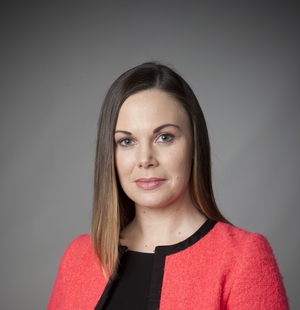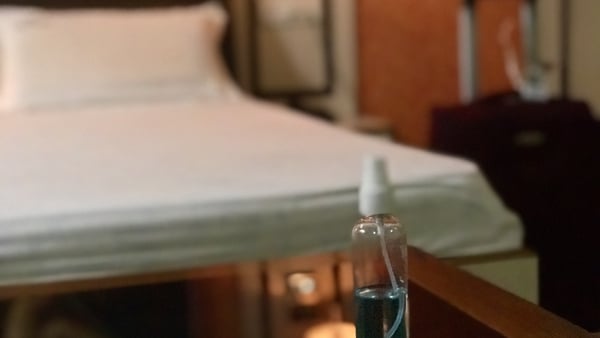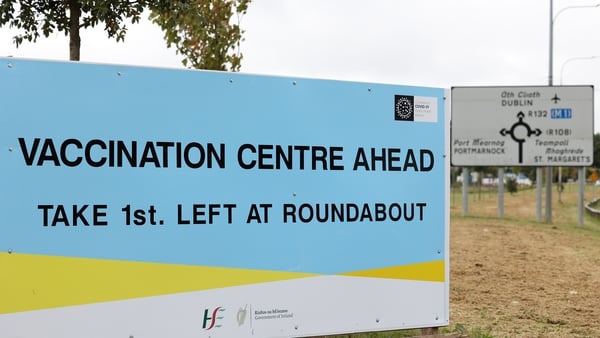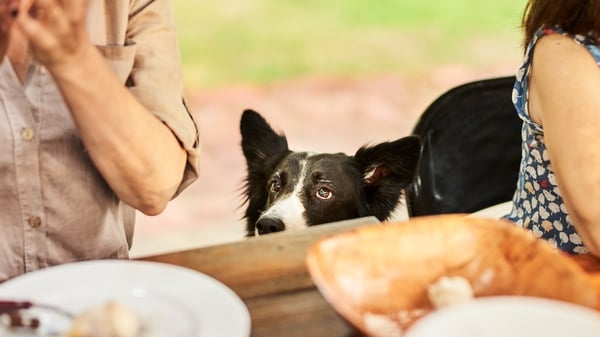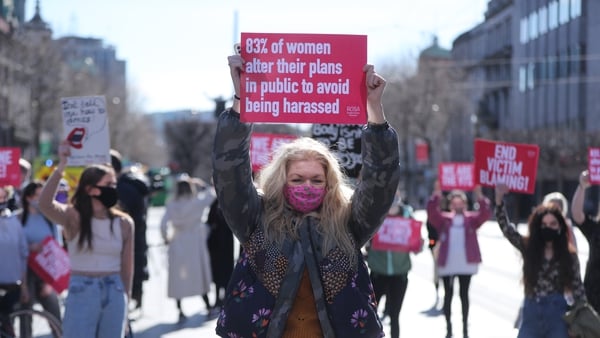A survey on youth mental health in Ireland has shown a significant increase in the number of young people suffering from anxiety.
The My World 2 Survey, carried out by UCD in conjunction with youth mental health organisation Jigsaw, spoke to more than 19,000 young people aged 12-25.
It is the largest survey of its kind in Ireland and shows the number of young people suffering from anxiety has doubled since the last survey was conducted in 2012.
For those aged between 12-19, 22% reported severe or very severe anxiety. That is double the number in the last survey.
For young adults, those aged 18-25, 26% were categorised as being in the severe to very severe anxiety category, an increase of 11% on the last study.
The findings show that females are more likely to suffer with severe or very severe anxiety.
The survey also looked at protective factors in young people's lives and found that those who reported having an adult in their life whom they could talk to was important to positive well-being.
The purpose of My World 2 is to build a picture of youth mental health in Ireland.
According to the Central Statistics Office, over a third of Ireland's population is under the age of 25.
The authors of the survey say that given the vast number of changes that occur during adolescence and early adulthood, this is the peak time for the onset of mental health difficulties.
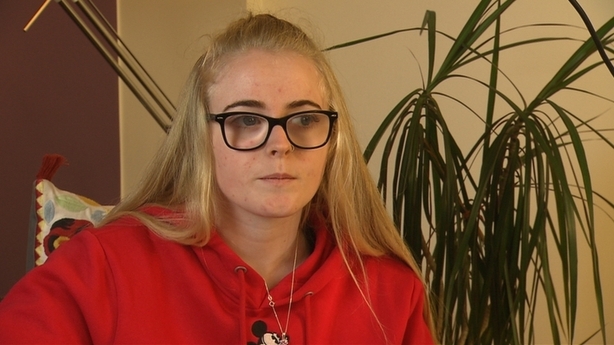
Niamh is 19 and from Clondalkin in Dublin. She said she began dealing with mental health issues when she was about 12. She suffers from anxiety and also has a disability that makes it difficult for her to see.
"I kind of started to understand what it [mental health] was and realising there was something a little bit different and not the same as everybody else in school," she said.
Niamh said her anxiety issues were compounded by her disability.
"The likes of normal day (to day) stuff people don't even have to think about, like getting the bus. My anxiety flares up cos I can't see the number of the bus. So I don't know if it's my bus or the right bus.
"Obviously exam pressure would have been huge, and it's huge for everyone, but I had an added pressure of can I actually see the numbers on the page in my maths exam ... so it was exam pressure, stress, doubled. It was heightened, because of my disability as well," she said.
Niamh is involved in her local youth service and she said in her experience, even where you come from can impact on a young person's mental health.
She said: "The amount of young people [who] are facing problems at the moment is huge ... I did my own survey in the youth service as part of my college studies and the stuff that young people the age of 8 to 18 is huge, nearly everybody that filled out the survey is dealing with mental health in some capacity.
"I also wrote the question 'Do you think it’s a factor of being in Neilstown or not?' and the majority of them said yes. That's really worrying because they can already identify that there's something wrong here and that's why there's something wrong in my head."
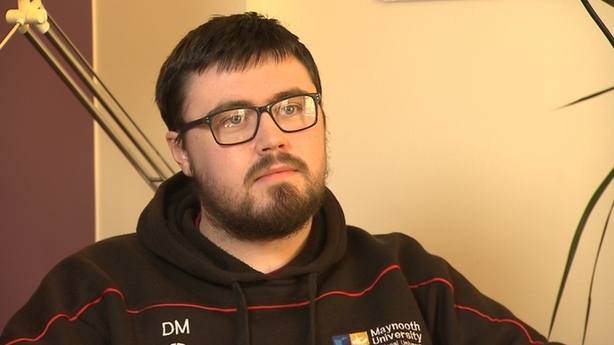
Dean, who is 20 and from Ballymun, said he went through a bad phase when he realised he was not going to be able to take the route through college that he wanted to take.
"When I did my CAO application and realised I couldn't go to Maynooth because I didn't do a third language (for my Leaving Cert). I just didn't really know what I was doing," he said.
"I just felt I was doing the Leaving Cert for nothing because at that stage I wasn't (going to be able to go to Maynooth)."
He said there were a number of key people he was able to turn to, especially his PE teacher, who were able to guide him through what he was going through.
One of Jigsaw's campaigns centres on young people having a 'One Good Adult' who they can turn to in times of need. Dean said this was a huge help to him.
"I came through it because of having 'One Good Adult'. Well I had more than one, but in the school I had the PE teacher and I'd still be really close with him," he said.
"Then I was deeply involved in youth work, and still am, so I had numerous different youth workers for support as well."
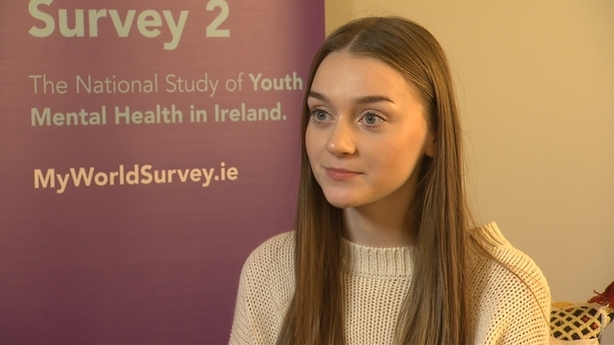
Nicole is 17 and from Co Offaly. She said she began experiencing feelings of anxiety when she started secondary school.
"Anxiety is a big challenge. From secondary school it became a big part of my life ... it feels like pressure, but like built up, or like panic. It's hard to explain but its overwhelming," she said.
Just being around crowds of people could trigger her feelings of anxiety.
"Big groups of people, it just made me feel self-conscious so it would make me react badly ... mostly just freezing," she said.
"I couldn't move so I would text someone and (ask them) can you come meet me and walk the rest of the way with me."
Nicole thinks that younger people are coming forward more to talk about the mental health difficulties they are facing. She said that seeing posters about Jigsaw and learning about mental health in school assisted her in asking for help.
"It makes your life easier, honestly, just being able to speak to people. And different methods on breathing and just getting through it," she said.
The lead researcher on the project said she does not think the increase in the number of young people with anxiety is simply because of a more open approach to talking about mental health, and that it is not limited to Ireland's young people.
Professor Barbara Dooley said: "I think openness will be part of that, that it is a conversation that people are likely to be prepared to have nowadays, however I think when we look at the data and other areas internationally, it's not just Ireland that's seeing this increase in anxiety. So I think it is more likely to be a change and an increase rather than actually just a factor of talking".
Speaking on RTÉ's Morning Ireland, Prof Dooley said they worked very hard on getting people to understand the importance of having an adult in a young person's life.
"When a young person has that one good adult or a person they can turn to when they're in need, their mental health is better and they're doing much better than those who say they don't have access to that one good adult."
She said the research found that some of the things we take for granted, like sleeping, eating and exercise, are very important for adolescents.
She said the mental health of young people who are getting the recommended amount of sleep on a daily basis and taking regular exercise is better than those who are not.

